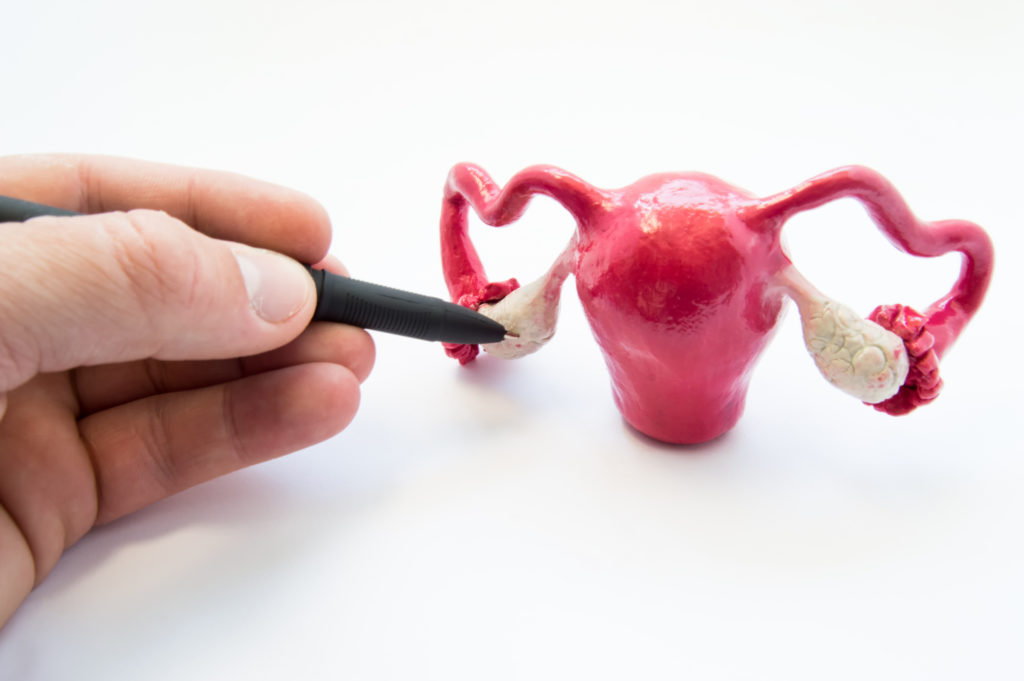 According to Mayo Clinic, ovarian cysts are fluid-filled sacs or pockets in an ovary or on its surface.
According to Mayo Clinic, ovarian cysts are fluid-filled sacs or pockets in an ovary or on its surface.
They are common and usually form during ovulation. Ovulation happens when the ovary releases an egg each month. Many women with ovarian cysts don’t have symptoms. The cysts are usually harmless. But when they burst or rupture, it’s a type of excruciating pain that can leave you immobile.
RELATED: The 6 Types Of Ovarian Cysts (And What You Can Do About Them)
A ruptured ovarian cyst, then, is a fluid-filled, typically benign (non-cancerous) mass on an ovary that has broken open. In many cases, cysts go away on their own after a few menstrual cycles. But in other cases, where the cyst is complex, they may cause damage and need serious treatment.
Why do ovarian cysts burst?
Health experts don’t know exactly what makes a cyst burst.
Size can be a factor. The bigger the cyst, the more likely it’ll pop, like an overfilled water balloon. Yet there can be huge cysts that are so slow-growing that they don’t rupture — as well as small, fast-growing cysts that do.
Sex and intense exercise also can cause a cyst to rupture.
Signs and Symptoms of a Ovarian Cyst Rupture
When an ovarian cyst ruptures, the fluid inside of it ends up in your pelvic cavity, where it can be reabsorbed over time.
RELATED: 5 Signs of a Ruptured Ovarian Cyst You Shouldn’t Ignore
The Mayo Clinic lists these signs and symptoms of ruptured ovarian cyst. But there are five that are less common, but need attention:
– Dull or sharp pain on one side of your lower abdomen
– A feeling of fullness or heaviness in your abdomen
– Bloating
– Pain that comes with a fever
– Nausea and/or vomiting. Depending on the cyst, contents that leak into your abdomen can make you really sick.
– Dizziness. This can indicate there’s a lot of bleeding in your belly. Other symptoms of hemorrhage include vision changes and a racing heartbeat. Not all ruptured cysts cause excessive bleeding, but you’re at a higher risk if you take blood thinners or have a bleeding disorder.
– Breathing at a rapid rate. Not to be mistaken for a panic attack, this symptom of breathing faster is your body’s response to what’s going on. An elevated heart rate may also accompany it.
– Chilly, clammy skin. Patients have shared that they have felt a very real difference in their skin on their palms, hands and arms. THe feeling of chills seem to be throughout the entire body.
– Vaginal bleeding
Some ruptured ovarian cysts can cause a lot of bleeding. These need medical treatment right away. In severe cases, blood loss can cause less blood flow to your organs. In rare cases, this can cause death.
RELATED: Girls With Type 2 Diabetes at Higher Risk for Ovarian Cysts
Many women have functional ovarian cysts. Most of these are not complex. A ruptured cyst that is not complex can be treated with pain medicine. You may be told to watch your symptoms over time. According to Johns Hopkins, in some cases, you may need to have follow-up ultrasound tests. You may not need any other treatment.
If the cyst is complex, you may need different care. This type of cyst may cause:
– Blood loss that causes low blood pressure or fast heart rate
– Fever
– Signs of possible cancer
RELATED: 5 Natural Remedies For Ovarian Cysts
If you have a complex ruptured cyst, you may also need care in the hospital. Your treatment may include:
IV (intravenous) fluids to replace lost fluid
Careful monitoring of your heart rate and other vital signs
Monitoring of your red blood cell level (hematocrit) to check the blood’s ability to carry oxygen
Repeated ultrasounds to check for bleeding into your belly
Surgery for a worsening medical condition or to check for cance
RELATED: Silent Killer: What Black Women Must Know About Ovarian Cancer
If your ruptured ovarian cyst is not complex, you will likely continue your care at home. You can use pain medicines as needed. Your pain should go away in a few days. Let your provider know right away if your pain gets worse, if you feel dizzy, or have new symptoms. Follow up with your provider if you need imaging or blood tests.









